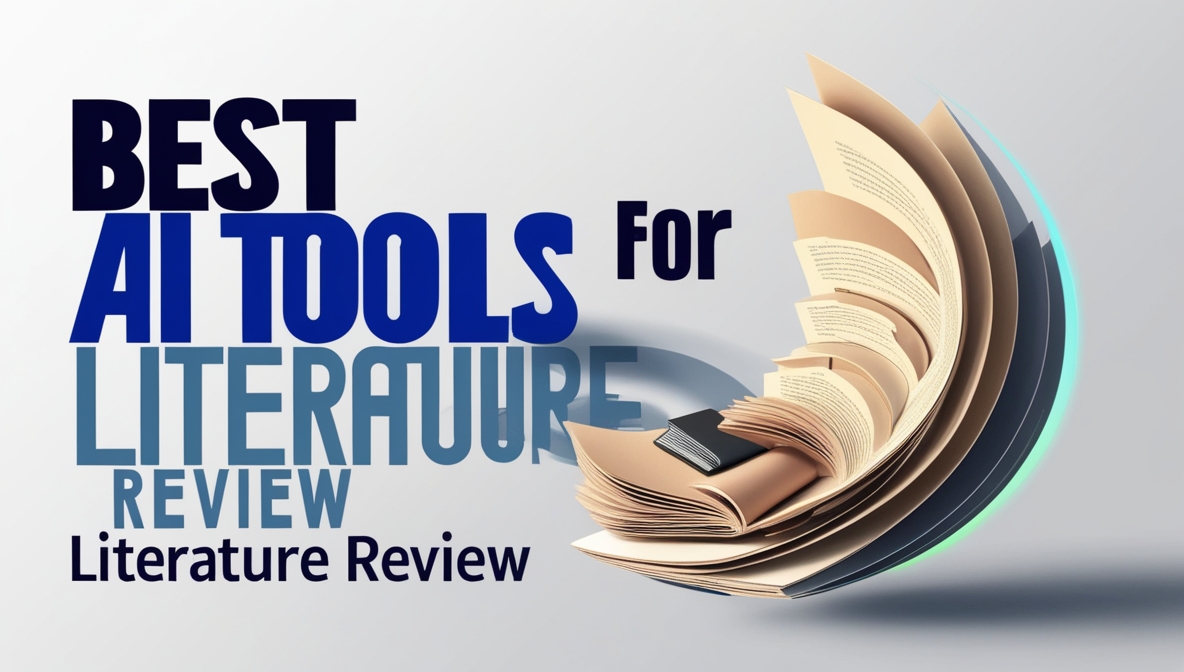When you are doing a literature review, you need to look at many sources and make sense of them. This takes time and effort. AI tools can help by reading large amounts of text and finding key points quickly. They can make the work easier and faster for you.
In this article, we will discuss Best AI Tools for literature review. These tools help you find, organize, and understand information. We will look at five of the top tools that can save you time and improve your research.
Best Ai Tools for literature review
Zotero – Open-source tool for managing citations and research materials, with browser integration.
EndNote – Comprehensive reference management with built-in AI for organizing research and citations.
Mendeley – AI-assisted tool that helps manage and share research papers, as well as generate citations.
RefWorks – Cloud-based reference management system with AI-driven citation organization and collaboration features.
Research Rabbit – AI-powered tool for discovering, organizing, and sharing research papers.
Litmaps – Visualizes literature relationships over time, assisting with the discovery of new relevant papers.
Iris.ai – AI-based tool that reads and summarizes research papers, simplifying complex literature.
Scholarcy – Automatically summarizes articles, extracting key points and highlighting important sections.
Connected Papers – Helps visualize the connection between papers in a particular field of research.
Scite – Provides AI-driven citation analysis to show supporting or contrasting studies for your research.
Best 5 Ai Tools for literature review
1. Iris.ai
Benefits:
- Iris.ai helps you explore research papers by summarizing complex literature, speeding up the review process.
- It also provides AI-driven tools to map out research relevant to your project, ensuring you don’t miss key papers.
Features:
- AI-powered reading and summarizing of academic papers.
- Auto-generates a visual knowledge map of relevant literature.
- Keyword-based search refinement for deeper insights.
- Finds similar research papers with related concepts.
- Ability to download and export data summaries.
Pricing:
- Free plan available with limited features.
- Premium plan starts at $10/month for full features.
2. Research Rabbit
Benefits:
- Research Rabbit allows collaborative research discovery, organizing papers into collections with AI-based suggestions.
- It simplifies literature exploration by continuously recommending relevant papers based on your collections.
Features:
- AI-powered paper recommendations based on your interests.
- Collaborative workspace for shared research collections.
- Automatically tracks new papers in your field.
- Visualizes research connections through citation maps.
- Bookmark and annotate papers for easy reference.
Pricing:
- Free plan with basic features.
- Paid plans start at $5/month for additional features.
3. Litmaps
Benefits:
- Litmaps helps you stay on top of the latest research developments by tracking new citations in your field.
- It allows you to visually map literature connections, making it easier to spot trends and gaps.
Features:
- Visual citation maps showing paper relationships.
- Track new papers citing key research.
- Alerts when relevant papers are published.
- Shareable and customizable maps for collaborative projects.
- Integration with reference management tools like Zotero.
Pricing:
- Free plan with basic citation maps.
- Pro plan at $9/month for advanced mapping and tracking features.
4. Scholarcy
Benefits:
- Scholarcy automatically creates summaries of academic papers, allowing you to grasp key points quickly.
- It extracts important highlights from research, speeding up the literature review process.
Features:
- Automatic paper summarization with key insights.
- Highlighting of key sections like methodology, results, and conclusions.
- Extracts figures, tables, and references from papers.
- Export summaries to your preferred citation manager.
- Supports multiple formats (PDF, Word, etc.).
Pricing:
- Free plan available with limited summaries.
- Premium plan starts at $7.99/month for full summarization features.
5. Connected Papers
Benefits:
- Connected Papers helps visualize the relationships between different academic papers, making it easier to identify key works.
- It is perfect for discovering important but less-known papers related to your research.
Features:
- AI-driven visualization of paper connections.
- Displays papers with similar research fields or keywords.
- Allows for deep exploration of literature clusters.
- Provides citation analysis for related papers.
- Easy export of maps and paper lists for future reference.
Pricing:
- Completely free to use.
FAQs
What is an AI tool for literature review?
AI tools help automate the process of gathering, analyzing, and summarizing research papers.
Can AI tools find relevant literature faster than manual searches?
Yes, AI tools can scan databases quickly, saving time on manual searches.
Do AI tools ensure the quality of selected literature?
AI tools prioritize relevance but may still require manual review for quality.
Are AI literature review tools user-friendly for non-technical users?
Most AI tools are designed with user-friendly interfaces for ease of use.
Conclusion
AI tools can greatly simplify the literature review process, saving you time and effort. By quickly reading and summarizing research papers, these tools help you find essential information and understand complex topics better.
Using tools like Iris.ai, Research Rabbit, and Litmaps allows for more effective organization and exploration of literature. These resources ensure that you stay updated on relevant research, making your review process more efficient and thorough. Embracing these AI tools can enhance your research experience significantly.

